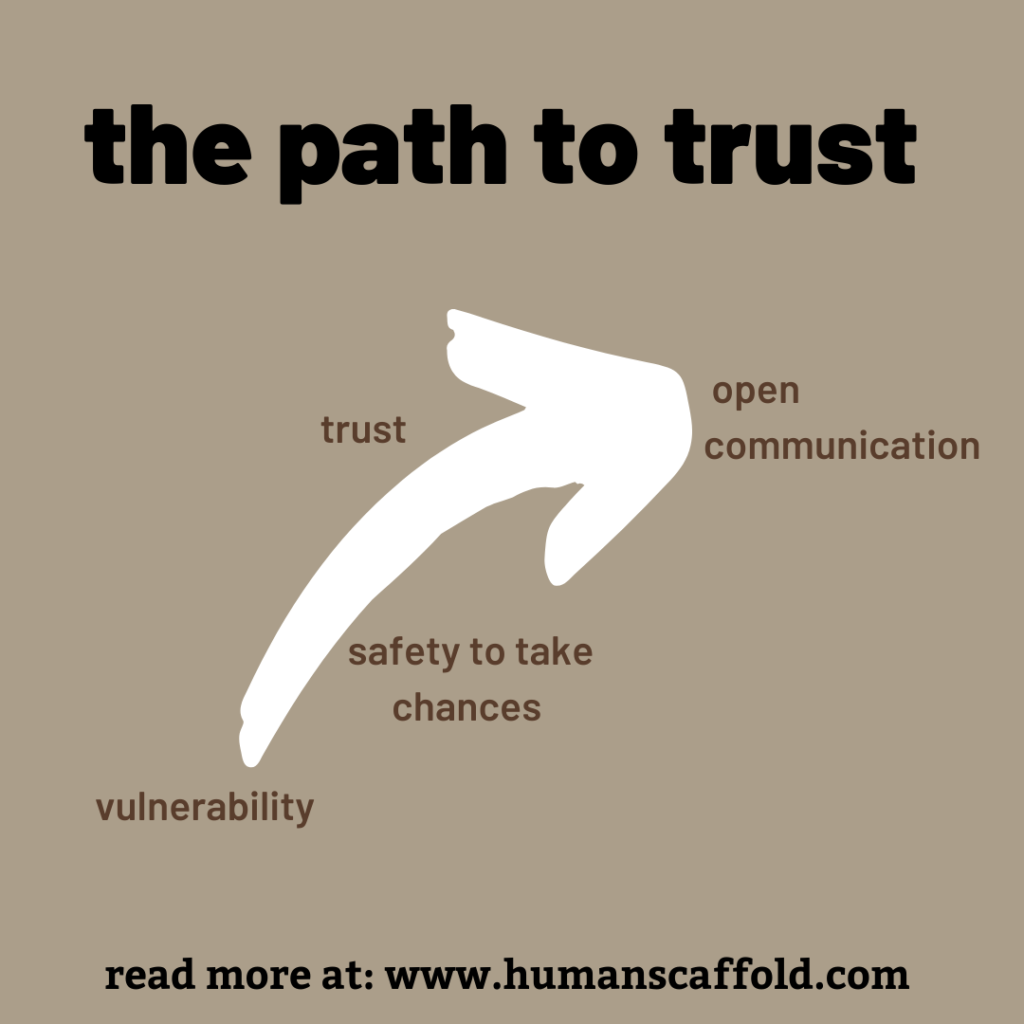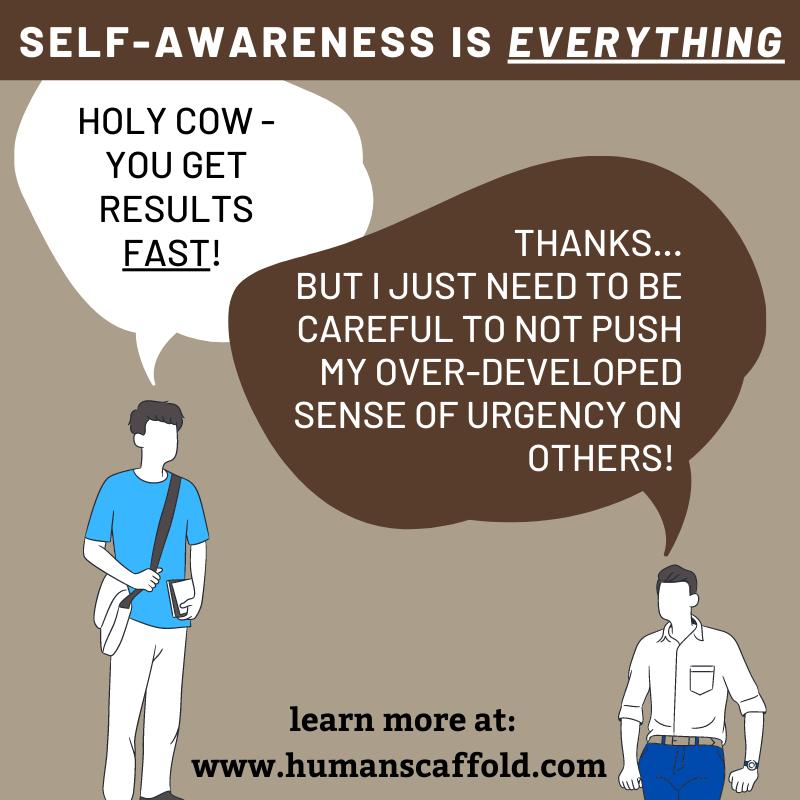The ‘path to trust’ leading to ‘open communication’ (see diagram below) is the ideal situation with any team, organization or even family. However, there are other key considerations, perhaps the most important being: self-awareness. How do your own behaviours affect your relationships with others? Understanding your ‘internal self-awareness’ is a good start!
Hello Me, Nice to Meet You!
When looking at our own self-awareness, there are no right or wrong answers. Learning about one’s self should not be focusing on weaknesses or areas of improvement, but trying to objectively understand which behaviours you have a tendency to exhibit. For example:
- Are you more cautious or more of a risk-taker?
- Do you have a tendency toward introversion or extroversion? Or both?
- Are you restless or are you more patient and prefer calm?
- Do you like to set the rules, or prefer to have the rules outlined to you?
Awareness of your own behavioural tendencies in these areas will help in gaining an understanding of how you can contribute to your team. However, how do your behaviours affect others?
Internal vs. External Awareness
Understanding your own behavioural tendencies can be described as “internal self-awareness”. The flipside of this would then be understanding how your behaviours affect others, or “external self-awareness”. For example, knowing that you have a high sense of urgency is important to be able to support customers with top-notch service – this is most helpful, especially for those involved in sales. However, this could get annoying to co-workers if you expecting the same sense of urgency from them, especially for items that aren’t considered a priority. Or perhaps it’s a priority to them but not you? Being externally self-aware is a key ingredient in teamwork.
“That Wasn’t My Intention”
Conflict is often a result of a misunderstanding between two co-workers with the same goal in mind. Using the example above, if two co-workers are both are aiming to support a customer, but if one person has an overdeveloped sense of urgency and is placing unfair demands on the other, the conflict may result. This is fine, but it’s imperative that they feel comfortable communicating their feelings. In this way, open communication will allow for a continued evolution of self-awareness of both individuals. Don’t put your communication on a shelf – keep it flowing. Otherwise, you’ll have “shelf-awareness”… wahwahwahhhhhh.
Let’s chat!
I’m happy to discuss any successes, challenges and areas of need of enhancement that you may have in your workplace. Give me a shout at: 905-481-2734, or email: mike@humanscaffold.com




